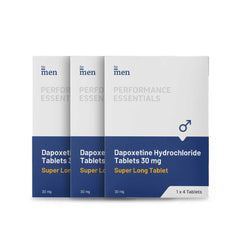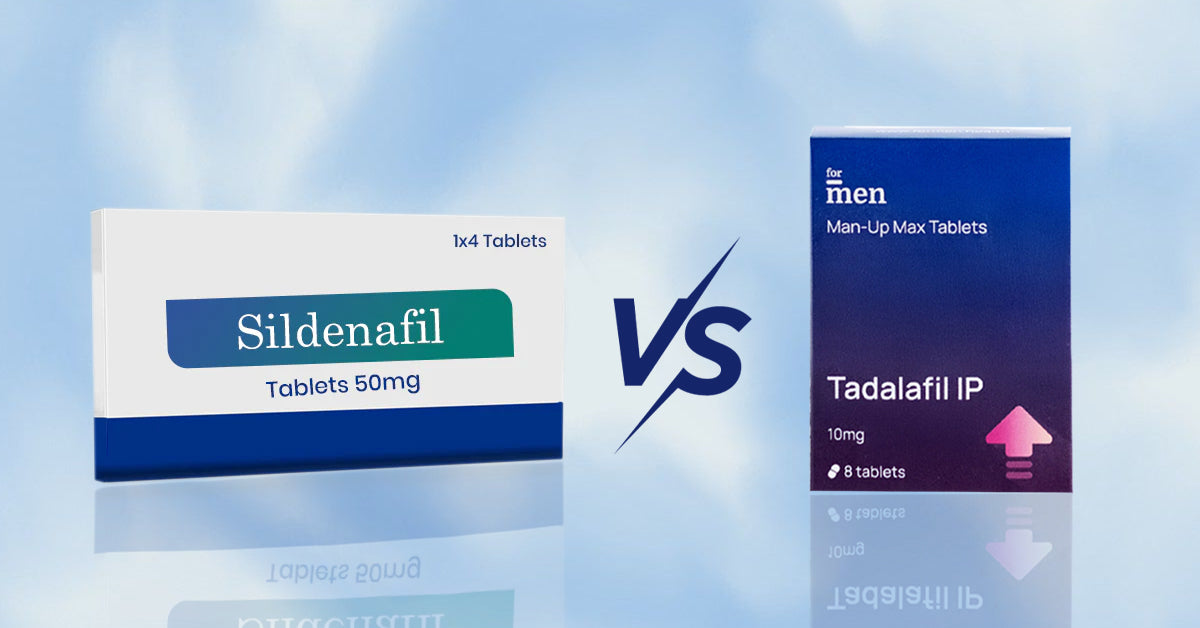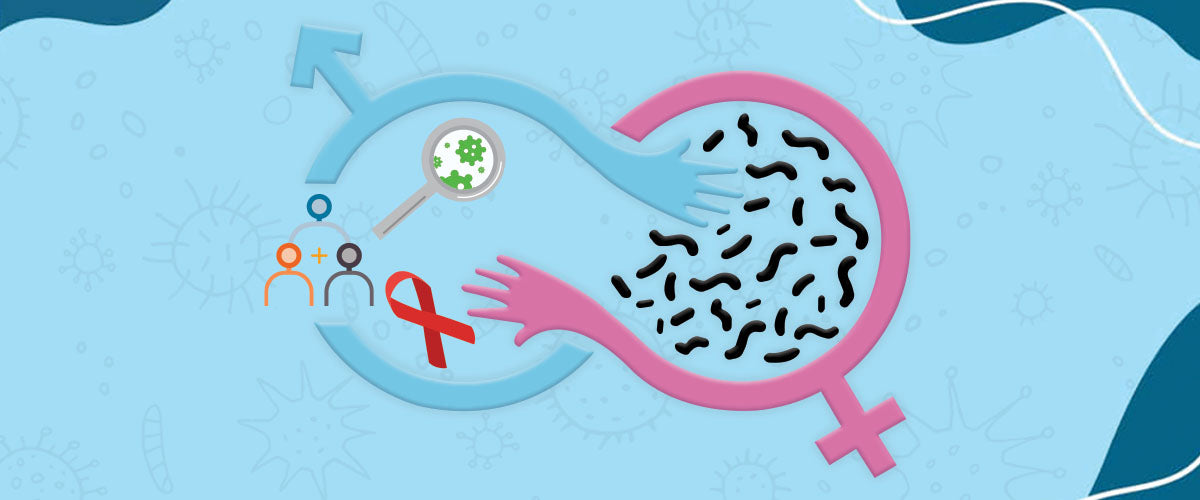How to Increase Sperm Count and Make It Strong and Thick?
Evidence Based
All the information in this blog post is accurate, trustworthy, scientifically based and has been written and fact-checked by our experts and doctors.
Our licensed nutritionists and dietitians are committed to being objective, unbiased and honest, presenting all sides of the argument.
This article includes scientific references in brackets, which are clickable links to research papers from reputable academic organizations.

Maintaining healthy sperm count and quality is essential for male fertility and overall reproductive health. A high sperm count with strong, thick semen increases the likelihood of conception and is an indicator of good health. This blog delves into various approaches, from lifestyle adjustments to dietary changes, to help boost your sperm count and improve sperm quality.
What is Sperm Count?
Sperm count refers to the number of sperm in a given semen volume. It is a critical factor in male fertility, as a higher sperm count increases the chances of one sperm reaching and fertilising an egg. Typically, a normal sperm count ranges from 15 million to more than 200 million sperm per millilitre of semen. A count lower than 15 million is considered low and may lead to fertility challenges.
Factors Affecting Sperm Count
Several factors can influence sperm count and overall sperm health, including:
i) Lifestyle Choices
Smoking: Reduces sperm production and motility.
A 2016 meta-analysis, which reviewed the results of over 20 studies involving nearly 6,000 participants, found that smoking consistently reduced sperm count.
Alcohol Consumption: Excessive drinking can lower testosterone levels and sperm production.
A 2018 review linked the global use of alcohol, marijuana, and cocaine to decreased sperm production. Though some evidence is conflicting, further research is needed to confirm these findings.
Drug Use: Recreational drugs like marijuana and cocaine can impair sperm quality.
ii) Diet
Poor Nutrition: Deficiencies in essential nutrients can negatively impact sperm production.
Obesity: Excess body fat can alter hormone levels, reducing sperm count.
iii) Medical Conditions:
Varicocele, infections, hormonal imbalances, and genetic disorders can affect sperm count.
iv) Environmental Factors:
Exposure to toxins, pesticides, heavy metals, and radiation can impair sperm production.
What are the Benefits of Having a High Sperm Count?
Having a high sperm count offers numerous advantages, including:
1) Increased Fertility:
A higher sperm count improves the chances of one sperm successfully fertilizing an egg, increasing the likelihood of conception.
2. Overall Health:
A high sperm count is often correlated with better general health and vitality, as it indicates a well-functioning reproductive system.
3. Sexual Health:
Men with a high sperm count typically experience better sexual health and performance, including improved libido and erectile function, may be because an ideal sperm count is also an overall indicator of reproductive health.
Tips to Improve Sperm Count:
Here are some tips, that help to improve sperm count and quality. Let’s see what are they and how they impact your sexual health.
1. Dietary Changes to Boost Sperm Count
Making specific dietary changes can significantly boost sperm count and improve sperm quality. Here are some key dietary modifications to consider:
Foods to Include
- Fruits and Vegetables: Rich in antioxidants that protect sperm from oxidative damage.
- Whole Grains: Provide essential nutrients and improve overall health.
- Lean Proteins: Such as chicken, turkey, and fish, which are crucial for sperm production.
- Nuts and Seeds: High in omega-3 fatty acids and zinc, which are vital for sperm health.
- Dark Chocolate: Contains L-arginine, an amino acid that can increase sperm count and motility.
Foods to Avoid
- Processed Foods: Often high in unhealthy fats and additives that can harm sperm health.
- Excessive Sugar: Can lead to insulin resistance and hormonal imbalances.
- Trans Fats: Found in many fried and packaged foods, can reduce sperm count.
2. Essential Nutrients for Sperm Health
Certain vitamins and minerals are crucial for optimal sperm production and overall sperm health:
Vitamin C is a potent antioxidant that improves sperm count and motility by protecting sperm from oxidative stress. By neutralising free radicals, it helps prevent cellular damage, ensuring that sperm maintain their structural integrity and function effectively.
Vitamin E, another powerful antioxidant, shields sperm from damage and enhances overall sperm health. It protects the cell membranes of sperm, reducing the risk of DNA damage and improving motility and viability.
Zinc is essential for testosterone production and sperm development. This vital trace mineral is abundant in seminal fluid and is crucial for the proper functioning of the male reproductive system. Zinc deficiency is linked to lower sperm count and poor motility, while supplementation can enhance volume, motility, and the proportion of healthy sperm.
Folic Acid, also known as vitamin B9, is vital for DNA synthesis and sperm maturation. Adequate intake of folic acid is associated with higher sperm count and better sperm quality, supporting critical cellular functions like DNA and RNA synthesis and cell growth.
Coenzyme Q10 (CoQ10), is a vitamin-like compound with demonstrated benefits for sperm quality and male reproductive health. At optimal doses and with regular use, CoQ10 enhances motility, concentration, morphology, and size of sperm cells by providing energy and protecting them from oxidative damage.
If you're seeking an all-in-one solution to boost your sperm health, ForMen Fertiq-10 is your answer. This powerful supplement combines all the vital nutrients needed for optimal sperm production into one convenient capsule. With ForMen Fertiq-10, you'll benefit from reduced free radicals and DNA damage, improved sperm shape and size, and increased volume and count. Don't settle for less when it comes to your reproductive health — choose ForMen Fertiq-10 and experience the best support for enhancing your sperm quality and overall fertility.
3. Exercise and Sperm Health
Regular physical activity is beneficial for overall health and can also enhance sperm count and quality. Different types of exercises offer various benefits:
- Cardiovascular Exercises: Activities like running, swimming, and cycling improve blood flow, which is essential for maintaining healthy sperm production.
- Strength Training: Helps in maintaining healthy testosterone levels, which are crucial for sperm production.
- Yoga: Reduces stress and improves reproductive health through various postures and breathing techniques.
Avoid excessive exercise, which can lead to physical stress and negatively impact sperm production.
4. Impact of Stress on Sperm Count
Stress can significantly affect sperm count by disrupting hormonal balance. Chronic stress increases cortisol levels, which can lower testosterone production and reduce sperm count. To manage stress effectively:
- Practice Relaxation Techniques: Incorporate meditation, deep breathing, and mindfulness into your daily routine to reduce stress levels.
- Engage in Hobbies: Spending time on activities you enjoy can help reduce stress and improve overall well-being.
- Exercise Regularly: Physical activity is a natural stress reliever that also boosts overall health and sperm production.
5. Importance of Sleep
Adequate sleep is vital for maintaining hormonal balance and sperm health. Aim for 7-9 hours of quality sleep each night. Poor sleep can lead to decreased testosterone levels and impaired sperm production.
A 2017 study found significant benefits of a 16-week aerobic exercise program for sperm health. Participants engaged in at least three 50-minute sessions per week, reaching 50-65% of their peak heart rate. This regular exercise regimen led to increased sperm count and motility in 45 men with obesity and sedentary lifestyles, highlighting the positive impact of aerobic activity on male reproductive health. (Reference)
6. Role of Hydration in Sperm Quality
Staying hydrated is essential for maintaining healthy sperm. Proper hydration ensures optimal semen volume and improves sperm motility. Aim to drink at least 8-10 glasses of water daily. Dehydration can lead to thicker semen, making it harder for sperm to move effectively.
Healthy Sexual Practices
Maintain healthy sexual practices to support sperm health:
- Moderate Ejaculation Frequency: Too frequent ejaculation can lower sperm count, while too infrequent can affect sperm quality.
- Practice Safe Sex: Reduce the risk of STIs that can damage sperm.
Improving sperm count and quality requires a multifaceted approach, including dietary changes, regular exercise, stress management, and avoiding harmful substances. By making these lifestyle adjustments and seeking professional help when needed, you can enhance your reproductive health and increase your chances of conception.
Also Read the Articles:
- Top 10 Best Foods to Increase Sperm Count, Quality and Motility
- Does Smoking Affect Male Fertility and Reduce Sperm Count and Quality?
- How to Confirm Whether Sperm Went Inside?
- What Happens If We Release Sperm Daily?
- Semen Retention (Not Ejaculating) Health Benefits and Side Effects
| *** This Article is Written by Swetha Ramala. |
Disclaimer: The information provided on this page is not a substitute for professional medical advice, diagnosis, or treatment. If you have any questions or concerns about your health, please talk to a healthcare professional.

 Evidence Based
Evidence Based







Leave a comment